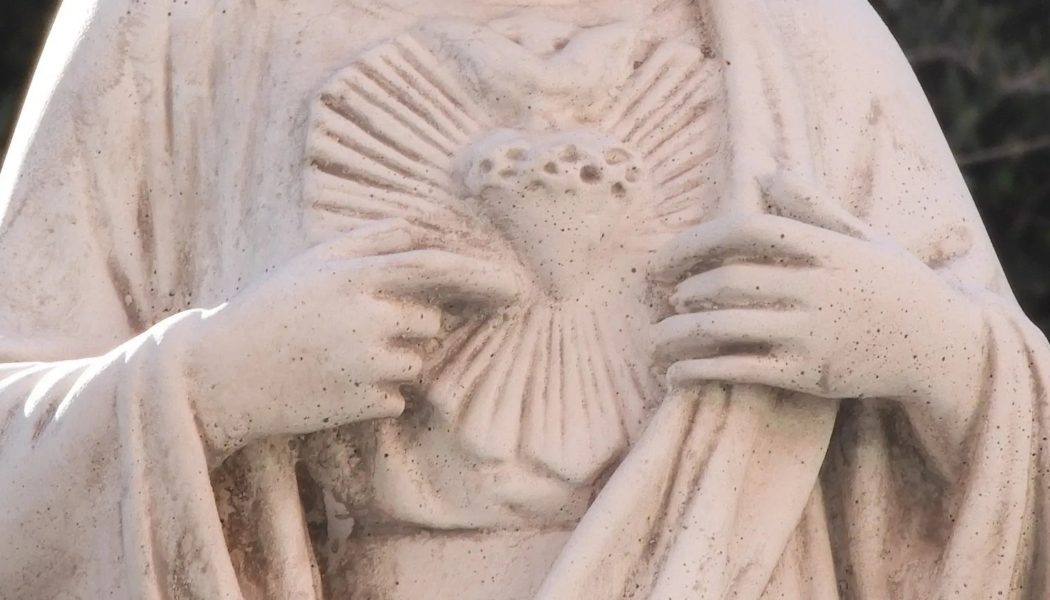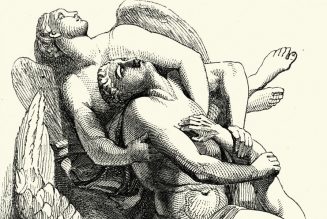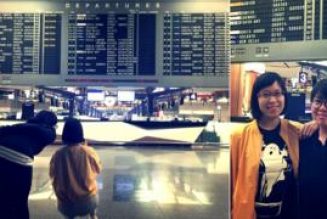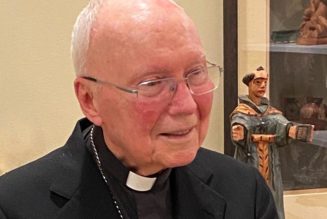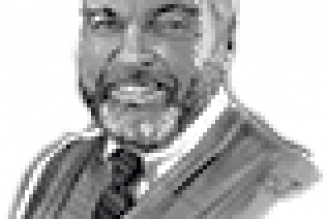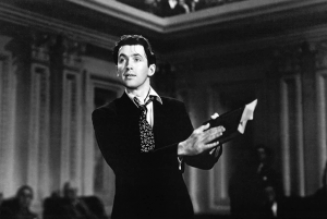
Jesus reveals himself to whom he will, but some people refuse to look.
That’s what Jesus tells us on the 14th Sunday of Ordinary Time, Year A. And he shows us how to be among those who see.
However clever we might be, our wisdom fails if our heart is in the wrong place.
First, Jesus says, “I give praise to you, Father, Lord of heaven and earth, for although you have hidden these things from the wise and the learned, you have revealed them to little ones.”
The Bible is filled with examples of the principle that wisdom fails when hearts are disordered. The greatest Old Testament example is Solomon, who was the wisest man on earth but died disgraced because his heart turned away from God. In the New Testament, the Magi who were willing to prostrate themselves before Jesus saw him but Herod, who had the benefit of their wisdom and a team of scholars, never did.
History is filled with examples of this principle as well. Vladimir Lenin was so gifted intellectually that scientists made a special study of his brain after his death to try to learn what accounted for his genius. But he also led a killing spree to suppress his political opposition in Russia, becoming responsible for the deaths of millions in often horrifying ways including torture and disfigurement. Lenin was smart but his heart was in the wrong place, so his wisdom meant nothing.
Radical secularism in our own “information age” illustrates the principle too. We have struggled since the enlightenment to build a new understanding of ourselves and our world without God, and today, virtues have been replaced with values, duty to others has been replaced with duty to self, and quiet humility has given way to loud pride. But for all of our efforts, we have only succeeded in building a world with more anxiety, more distrust, more fear, more violence, and more suicide.
All of the world’s wisdom fails if it is too proud to see God.
Jesus describes the two approaches to life in this Sunday’s Gospel in provocative terms: “All things have been handed over to me by my Father,” he says. “No one knows the Father except the Son and anyone to whom the Son wishes to reveal him.”
This passage in the Gospel of Matthew comes right after Jesus has criticized towns that had rejected him. “Woe to you, Chorazin. Woe to you, Bethsaida!” he says, “And you, Capernaum!” He lists his hometown and nearby cities that did not receive him when his public ministry began, and says that if the mighty works done in them had been done in Sodom, that famously sinful city would have repented and would have been spared.
It isn’t hard to see the application to the West. Europe was the “Capernaum” of Christianity, the place that first nurtured Christ’s faith to adulthood. For modern Europe and America to cast him off now is like Bethsaida and Chorazin casting him off then: We should know better, but we allowed familiarity to breed contempt.
His homeland may have grown proud, figuring they were the reason for his worth and fame, instead of recognizing that the reverse was the case. The West has grown proud in the same way, thinking we are a repository of great values, forgetting that they all came from Jesus Christ. Far from repenting as Sodom would have done, we have renounced his way in favor of Sodom’s.
And now, we can’t see him. Those busy succeeding on the world’s terms don’t see him. Those who want to have everything their way don’t see him. The contentious, argumentative people who always have to be right don’t see him. Those who are always searching for the easiest and most effective ways to please themselves don’t see him.
That is because he isn’t what we expect.
What should we expect instead?
Jesus puts it best this Sunday in what are among the most consoling words in all the Gospels: “Come to be, all you who labor and are burdened, and I will give you rest.”
He is the God who comes to give us a break, not the God who comes to break us. The First Reading makes that clear. “He shall banish the chariot,” a symbol of power. He will banish “the warrior’s bow,” a symbol of conflict. “His dominion shall be from sea to sea,” leaving no room for any other dominion — including those of us who try to dominate at work, at home, or in whatever room we happen to be in at any given moment.
Instead, he will come to us “meek, and riding on an ass.”
He doesn’t loudly prove he is right. He doesn’t force himself on anyone. He doesn’t imperiously demand his way. He just quietly is who he is and invites us to follow.
“If you live according to the flesh, you will die,” says St. Paul in the Second Reading, “but if by the Spirit you put to death the deeds of the body, you will live.”
Those who live according to the flesh won’t follow him, because their ego won’t let the Spirit of God penetrate their hearts. Those who try to impress with wealth, position or prestige won’t follow him, because the Holy Spirit can find no home in them. Just as those who stare at their phone don’t see the sunset and those who sit in their office don’t feel the breeze, those who always have to prove themselves never get to know themselves, and those who look to the world for comfort are restless forever.
But Jesus does tell us who will follow him — “all you who labor and are burdened.”
The tired see him.
The overworked see him.
Those desperate for rest see him.
Those who have given up expecting the world to satisfy them are ready to accept him.
But ultimately only those who take up his burden will receive the peace he offers.
Jesus says “Take my yoke upon you and learn from me, for I am meek and humble of heart; and you will find rest for yourselves. For my yoke is easy, and my burden light.”
Several months ago, the theme of one of these “This Sunday” pieces was about how difficult it is to follow Jesus: His is an hard way requiring radical change and great sacrifice. A reader wrote to complain, and cited this Sunday’s Gospel to prove that Jesus didn’t mean for his way to be difficult. But Jesus doesn’t say that: He says you must “labor,” submit to a “yoke,” and take up a “burden” to “learn from me.” Those who learn his meekness and humility will find rest.
I explain it this way: If someone said you had to give everything you own and spend all your days serving another person, 24/7, 365 days a year, you would say “No way. That too much: It’s slavery!” But that’s exactly what we promise to do for the one we love when we get married. The old exhortation from Catholic weddings puts it well: “Sacrifice is usually difficult and irksome. Only love can make it easy, and perfect love can make it a joy.”
That’s what we experience in Christ.
The burdens we carry in the world crush us, because the world doesn’t love us. The burdens we carry with Jesus lift us, because he does love us: totally, unconditionally, forever.
Image: Pixabay
